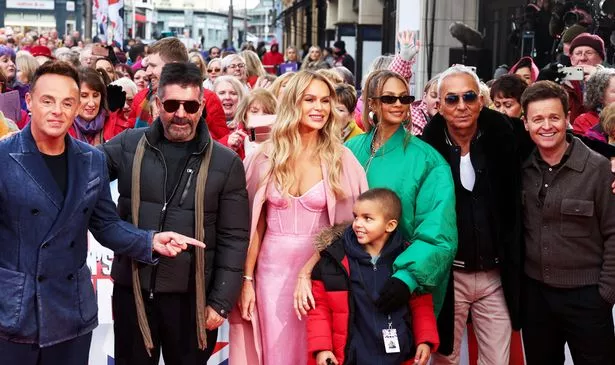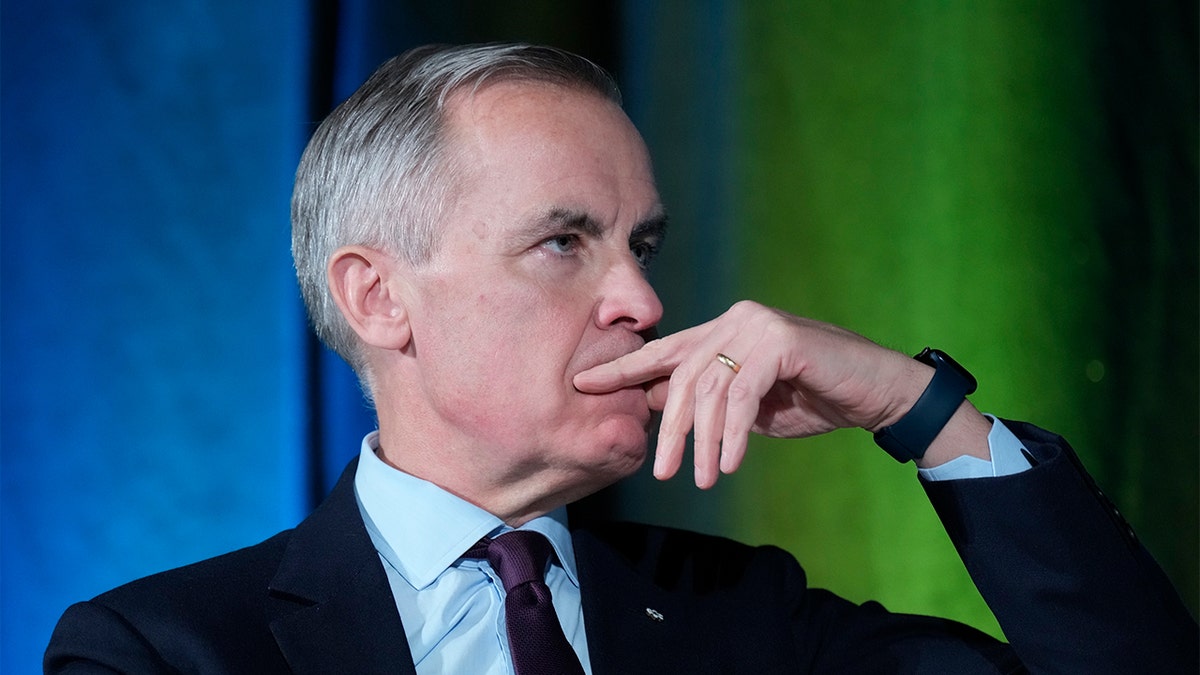BGT Audition Interrupted: Young Performer's Anxiety

Table of Contents
The Pressure Cooker of Reality TV Auditions
Reality TV auditions, particularly those with the high profile of BGT, create an incredibly high-pressure environment. The pressure to perform flawlessly under intense scrutiny can be overwhelming, even for seasoned performers, let alone children.
- Intense Competition: Thousands audition for a handful of spots, creating fierce competition and a palpable sense of urgency.
- Millions of Viewers: The prospect of millions judging your performance can be incredibly intimidating, fostering a fear of failure and public humiliation.
- Harsh Critics: The judgment from judges, often known for their critical comments, adds another layer of pressure and potential for public shaming.
- Time Constraints: Auditions are often short, leaving little room for error. The pressure to deliver a perfect performance within a limited timeframe intensifies anxiety.
- Public Scrutiny & Online Negativity: The rise of social media means that performances are instantly judged and critiqued by millions, increasing the potential for online bullying and negativity. This element significantly contributes to BGT audition pressure and reality TV performance anxiety.
Understanding Performance Anxiety in Young Performers
Performance anxiety, or stage fright, is a common experience, but for some young performers, it can escalate into a debilitating condition. Symptoms can manifest both physically and psychologically.
- Physical Symptoms: These can include shaking, sweating, rapid heartbeat, shortness of breath, nausea, and even dizziness. These physical manifestations further fuel the anxiety cycle.
- Psychological Symptoms: Young performers might experience intense fear of failure, crippling self-doubt, negative self-talk, and overwhelming feelings of inadequacy.
- Social Anxiety & Fear of Judgment: The fear of negative evaluation from the audience, judges, and even peers can be particularly strong in children and adolescents, making the social aspect of performing extremely challenging.
- Perfectionism: The desire to perform flawlessly can be a significant contributor to anxiety. The fear of making a mistake can be paralyzing.
- Normal Nervousness vs. Anxiety Disorder: It's important to distinguish between the normal butterflies experienced before a performance and a clinical anxiety disorder. If anxiety significantly impairs a child's ability to function, professional help is necessary.
Coping Mechanisms and Support Systems
Fortunately, there are many strategies for managing and coping with performance anxiety. A multi-faceted approach is often the most effective.
- Breathing Exercises & Mindfulness Techniques: Simple breathing exercises and mindfulness practices can help calm the nervous system and reduce physical symptoms of anxiety. Deep, slow breaths can significantly reduce heart rate and promote relaxation.
- Positive Self-Talk & Visualization: Replacing negative thoughts with positive affirmations and visualizing a successful performance can build confidence and reduce self-doubt. Mentally rehearsing the performance can also reduce anxiety.
- Seeking Professional Help: A therapist or counselor specializing in anxiety disorders can provide personalized strategies, coping mechanisms, and, if necessary, therapy to address underlying issues.
- Support from Family, Friends, & Mentors: A strong support network can provide emotional reassurance, encouragement, and practical assistance. A supportive environment is crucial for building confidence.
- Practice & Preparation: Thorough preparation and rehearsal can significantly reduce anxiety. The more comfortable a young performer is with their material, the less likely they are to experience overwhelming anxiety.
The Importance of Parental and Mentor Support
Parents and mentors play a vital role in supporting young performers. Their guidance and encouragement can make all the difference in helping a child manage their anxiety and thrive.
- Supportive & Encouraging Environment: Parents and mentors should create a safe and supportive environment where the child feels comfortable expressing their fears and anxieties without judgment.
- Recognizing the Signs of Anxiety: Being able to identify the early signs of anxiety allows parents and mentors to intervene and provide support before the anxiety escalates.
- Encouraging Healthy Coping Mechanisms: Parents and mentors can help children develop healthy coping mechanisms by teaching them relaxation techniques, positive self-talk, and mindfulness practices.
- Seeking Professional Help: Recognizing when professional help is needed and actively seeking it demonstrates support and prioritizes the child's well-being.
- Avoiding Pressure & Fostering a Love for Performing: The focus should always be on fostering a love for performing, not on achieving perfection or winning. Pressure only exacerbates anxiety.
Conclusion
The intense pressure of reality TV auditions like BGT, combined with the vulnerability of youth, can create a perfect storm for performance anxiety. Understanding the symptoms, developing effective coping mechanisms, and building a strong support system are crucial for helping young performers navigate this challenging environment. Overcoming BGT audition anxiety, or any form of performance anxiety, is possible with the right support and strategies. Let's work together to create a more supportive environment for young performers struggling with BGT audition anxiety and performance anxiety. Share your stories and resources in the comments below. Remember, you are not alone. Help and support are available.

Featured Posts
-
 Analise Corinthians Empata Com America De Cali Na Colombia Sorte Ou Juizo
May 04, 2025
Analise Corinthians Empata Com America De Cali Na Colombia Sorte Ou Juizo
May 04, 2025 -
 A Critical Look At Alexandre Dumas The Count Of Monte Cristo
May 04, 2025
A Critical Look At Alexandre Dumas The Count Of Monte Cristo
May 04, 2025 -
 Analysis Kanye Wests Marketing Strategy For Bianca Censoris Film
May 04, 2025
Analysis Kanye Wests Marketing Strategy For Bianca Censoris Film
May 04, 2025 -
 Mark Carney And Canadas West Gary Mars Perspective On Economic Development
May 04, 2025
Mark Carney And Canadas West Gary Mars Perspective On Economic Development
May 04, 2025 -
 Nyc Filming Bradley Cooper Directs Will Arnett For Is This Thing On Photo 5133886
May 04, 2025
Nyc Filming Bradley Cooper Directs Will Arnett For Is This Thing On Photo 5133886
May 04, 2025
